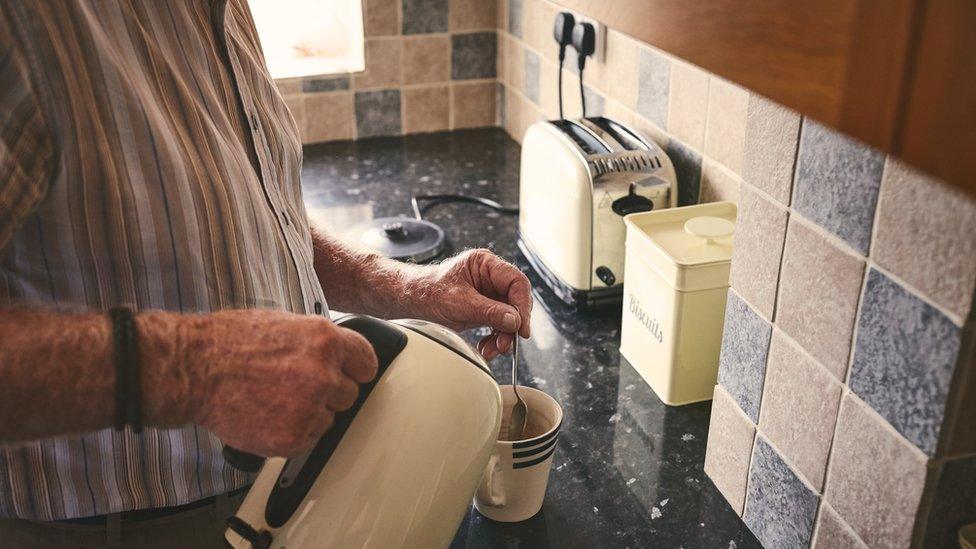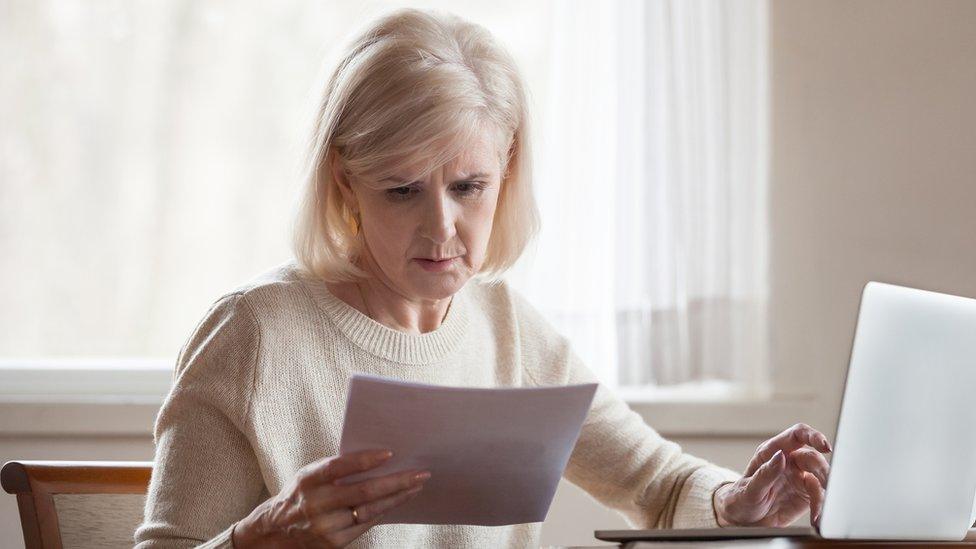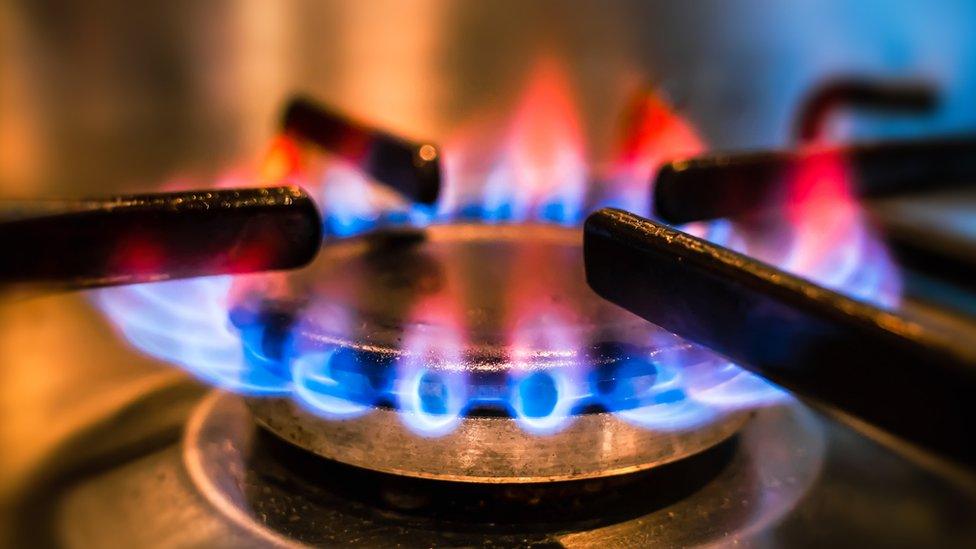Departments meeting to discuss possible 'mitigations' for NI energy customers
- Published

The firm's latest price rise will mean an average bill will increase by £131 a year
The energy regulator has said Stormont departments have been meeting to discuss "mitigation measures" for NI consumers this winter.
John French was speaking after Power NI's announcement that it was putting up prices by 21.4% from 1 January.
He told BBC Radio Ulster's On Your Behalf programme there had been a "once in a lifetime blip in terms of the spike of wholesale energy costs".
The energy regulator approves company price increases.
Mr French said they had justified the increases by "going through all the sums, checking their [the providers'] processes to ensure they have bought the energy correctly".
"Energy costs have rocketed on the international markets this year and as part of consumers' final energy bill between 50% and 60% of that final bill is made of wholesale costs," he told the programme.
"That's being passed through the international market through to Northern Ireland consumers."
It means the yearly electricity bill of a typical household with a credit metre will rise by about £131 per year.
Those with a keypad (PAYG) meter costs will see increases by around £127 per year
The Power NI increase is the second this year effecting 450,000 customers in Northern Ireland.
In July, it announced a 6.9% price rise.
Last week natural gas provider Firmus Energy announced it was putting gas prices up by 38% from 3 December across its Ten Towns network area.
The company said rising global energy costs had "forced" its hand to put prices up for the third time this year.
Firmus gas prices increased by 35% in October and by 18% earlier in the year.
Last week Chairman David Dobbin defended the increases.
"We had three successful price reductions last year and we went to one of the lowest prices we ever had," he said.
"We are comparing what is probably the highest price we have ever paid locally to last year, the lowest price we paid and I think that shows we pass along any reductions as they come.
"So as gas prices fall, we will pass those back to the consumers," he said.
"But at the moment they are moving up and they have moved up a tremendous amount - four times what they were, whereas we are talking about the bills only doubling," he added.
'Hopeful something can be done'
Mr French told the programme: "The Department for Communities and Department for the Economy, Consumer Council and ourselves are meeting regularly to see what mitigation measures can be brought forward for this winter period and I am still hopeful something can be done to help consumers coming into this winter."
Looking ahead to the new year, he said it may be hard to predict where prices would go.
"Gas prices are normally about 50p - if you're looking out for the next 36 months the gas price prediction doesn't fall below the £1 mark so we are going to see high prices for the next two to three years if the market stays stable," he said.
"Things could change - we could have a mild winter or a windy winter in terms of renewable generators and prices could come down but prices could rise if the alternative happens," he added.
- Published14 June 2022

- Published11 November 2021
